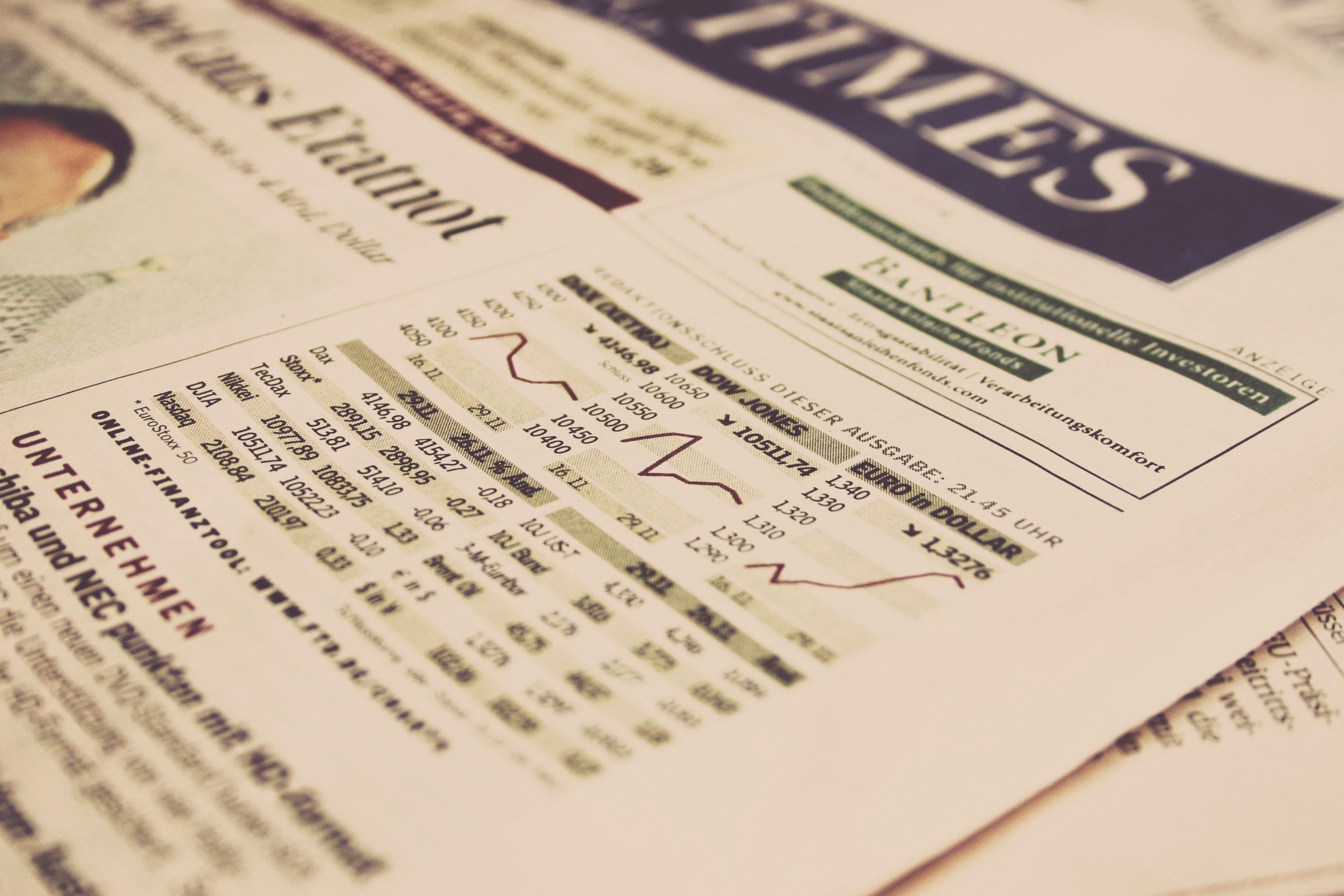This Is The Money Mindset You Need To Beat Inflation
Inflation is the general upward movement of the price of goods and services in an economy. With inflation, everything from a gallon of milk to a gallon of gas costs more tomorrow than it does today — and it gradually erodes the purchasing power of your savings.
Beating inflation isn’t hard, but you need a strategy in place to do the job. Currently, the annual rate of inflation is 2.1%, according to the latest Consumer Price Index (CPI). At time of writing, the national rate for a savings account held at a deposit institution is 0.09% APY, while the average return on certificates of deposit (CDs) is around .13% to .98%, according to the FDIC. Let’s take a look at the tools you’ll need to beat inflation.
Strategies To Beat Inflation
“The best inflation hedges are actually buying assets which might increase in value with inflation,” said David J. Haas, a certified financial planner with Cereus Financial Advisors in Franklin Lakes, N.J. This means buying things today that will increase in value at a rate that is equal to or higher than the rate of inflation.
The stock market is an excellent long-term inflation hedge, according to Haas. Investment products like individual stocks, exchange traded funds (ETFs), and mutual funds, have the potential to outearn inflation.
“When you own stock, you own part of a corporation which has price-setting power. That means corporate book-value as well as revenues rise with inflation,” said Haas.
The broad stock market over the long-term has provided average annual returns of 6% to 7% above the rate of inflation, said certified financial planner Randy Bruns, founder of Model Wealth in Naperville, Ill.
“Diversified portfolios of stocks and bonds have earned inflation-adjusted (or real) returns of between 3% and 6% over the long-term, depending on the makeup of the portfolio,” said Bruns.
What About Stock Market Volatility?

Financial planners caution that investors must consider that market volatility can affect your return.
“In years like 2019, a portfolio of stocks beat inflation by double digits, but that won’t persist as a long-term average,” said Bruns. “Nor should major stock market losses ultimately change your ability to outpace inflation over many years. It’s reasonable to begin with an assumption that your portfolio might earn historical inflation-adjusted returns of 3% to 6%, but to then reduce those returns by a percentage point or two to be conservative.”
Beat Inflation By Investing In Bonds

Another inflation-beating option is bonds, loans where you give a government or a corporation your money, in exchange for a promised return over time. But the type you purchase is vital — bond prices and interest rates typically move in opposite directions, and during high-inflation periods, interest rates rise which means bond rates decline.
“The entity pays you back over time, but inflation erodes the value of the currency being paid back,” said Haas. “So bonds are typically a poor investment in inflationary times. You are being paid back something which is less valuable than what you loaned out.”
Bonds Diversify Your Investments
However, purchasing some types of bonds to diversify your investments can be a smart overall strategy. For example, short-term bonds, which mature in one to four years, can do well in an economy where the interest rate is rising.
Longer term bonds, however, offer a trickier scenario as investors can’t accurately predict the change in interest rates and inflation over a longer time period. Higher inflation can reduce the value of payments, causing bond prices to fall.
Treasury Inflation-Protected Securities (TIPS)
Treasury Inflation-Protected Securities (TIPS) are bonds that are designed to do well during inflationary periods. The government-backed bond was introduced in 1997, and offer an adjustable principal that’s linked to the CPI. As inflation rises or falls, the value of the investment adjusts with it.
Investors can also purchase bond funds, which are similar to mutual funds but are invested in bonds instead of stocks. Managers of bond funds often buy and sell according to market conditions, and investors receive monthly income payments, which may vary from month to month.
“Investing in high quality bonds — through a broad market bond index fund, for example — has historically provided average annualized returns of 2% to 3% over inflation,” said Bruns.
Buy Annuities To Beat Inflation
Annuities are complex investment contracts typically offered by insurance companies to provide investors with an income stream for retirement. While they can be another answer on how to beat inflation, you have to choose wisely. Some annuity products pay the investor a fixed monthly income that isn’t adjusted for inflation, but others have features designed to address inflation head-on.
One tool is a cost-of-living adjustment (COLA) rider that will increase your annuity income payment by a percentage you choose. For example, if you choose 3%, which is higher than the current rate of inflation, your monthly payments will grow by 3% every year. The average inflation rate, tracked since 1913, is 3.1%.
Another feature is a CPI-rider that automatically adjusts your monthly payment based on the current rate of inflation. During times of high inflation, your income payment will go up and when inflation is stagnant, your payments will stay the same.
Build A CD Ladder
While the average CD rate won’t help you beat inflation, building a CD ladder can help you meet or beat the inflation challenge. A CD ladder is a portfolio of CDs with staggered certificate terms to take advantage of higher APYs offered by some banks and credit unions.
You start by purchasing CDs once a month or every few months to lock in rising rates, with the newest CD likely earning the highest rate. With a CD ladder, each certificate will complete its term at regular intervals, giving you steady access to cash at higher rates than you would receive in a regular savings or checking account.
Once interest rates start to stabilize, you can consider holding CDs for longer terms. While owning CDs can be a safer approach than some of the market-tied investments, in higher inflationary periods, your CD may simply match the current rate of inflation instead of beating it.
“CD ladders are a great idea for those assets folks would like to keep FDIC insured,” said certified financial planner Dennis R. Nolte, vice president of Seacoast Investment Services in Oviedo, Fla.
Real Estate Can Help You Beat Inflation

As inflation rises, investing in real estate can become an attractive option for beating inflation. When interest rates are low, the cost of getting a mortgage is often lower, as well. Low inflation generally brings down mortgage rates, which will reduce your payment, making it more affordable to buy a home.
Inflation can reduce the value of your debt because it reduces the value of money. Purchasing real estate by incurring debt allows you to realize the benefit of the money when it could go farther. As long as your wages keep up with the pace of inflation, you will pay back the loan with an interest rate that is effectively lower thanks to inflation.
“Real estate can be a good inflation hedge because it has value which may increase with inflation,” said Haas.
However, inflation can negatively affect housing prices, causing them to fall in the short term. Real estate should be considered a long-term investment, added certified financial planner Jon L. Ten Haagen with Ten Haagen Financial Group in Huntington, N.Y.
“Real estate, if it is an open-ended position, could be a good investment if you have the time horizon,” he said. “Time is your friend when investing.”
Delay Claiming Social Security Benefits
If you’re nearing the age of retirement, delaying your Social Security retirement benefits can help you beat inflation. You earn an 8% increase in your benefit amount each year you wait to collect, up to age 70. If you retire at 65, for example, you have the potential of increasing your monthly benefit check by as much as 40%.
“Social Security provides at least some ability to offset inflation, though increases in Medicare-related costs often chip into annual increases,” said Sean M. Pearson, certified financial planner with Ameriprise Financial Services in Conshohocken, Pa. “The longer you can wait to collect Social Security, the more protection you will have against inflation during retirement.”
If you collect Social Security before age 70, your future cost-of-living increases will be based on a lower monthly amount. For most people, the difference in collecting Social Security at age 62 means earning less than half as much than if that same person waits until age 70.
If you’re married, you can adopt strategies to make the most of your benefits. For example, the higher-earning spouse might delay benefits until age 70, while the younger spouse could collect payments sooner to create income.
“Beating inflation is typically a long-term mindset, as in saving for retirement,” said Bruns. “An inflation-beating investment matters because the more you can outpace the rising cost of your retirement, the less you’ll have to contribute out of pocket.”
This article was written by Stephanie Vozza and originally appeared on Magnify Money.






